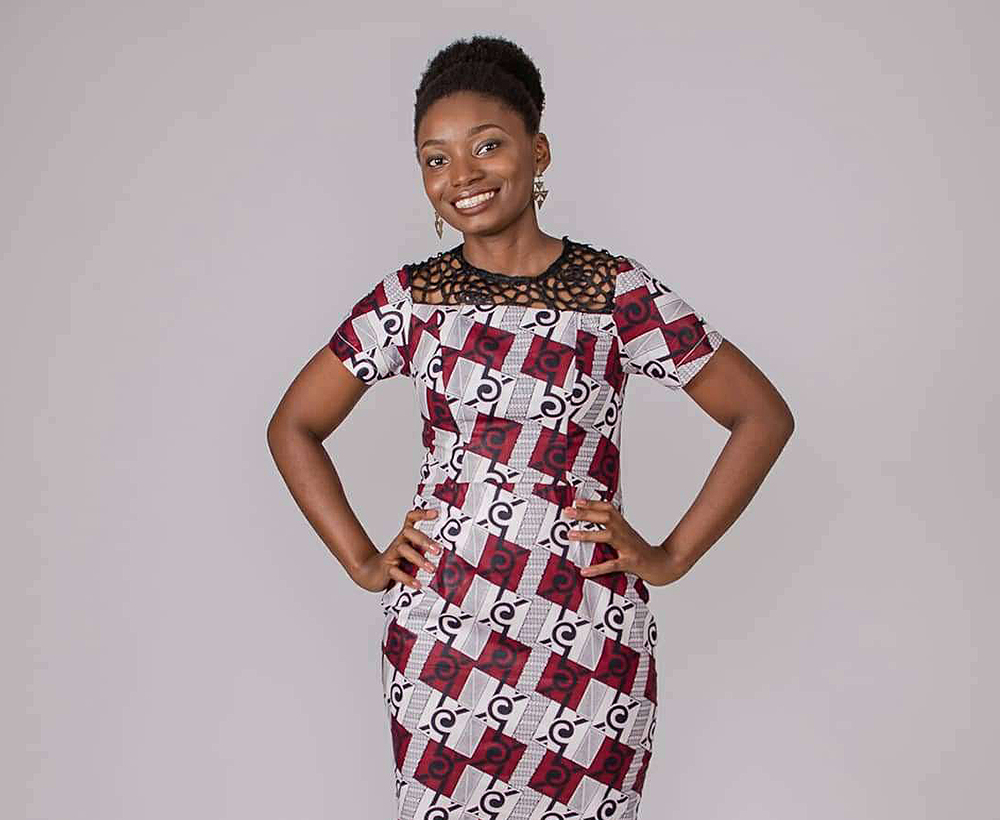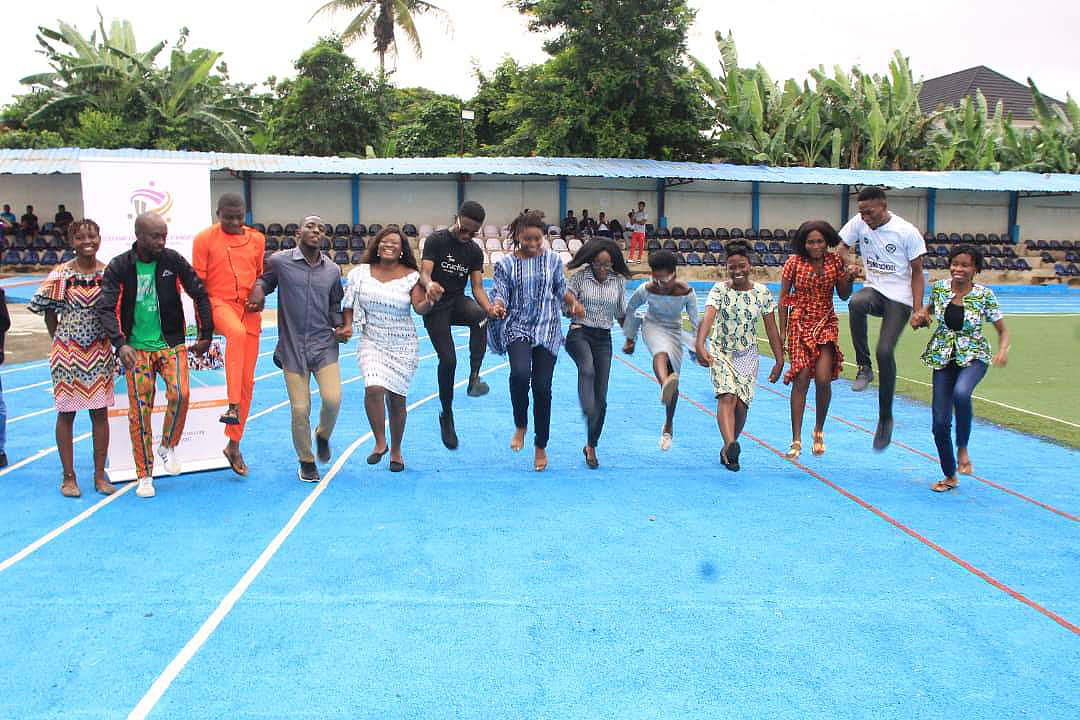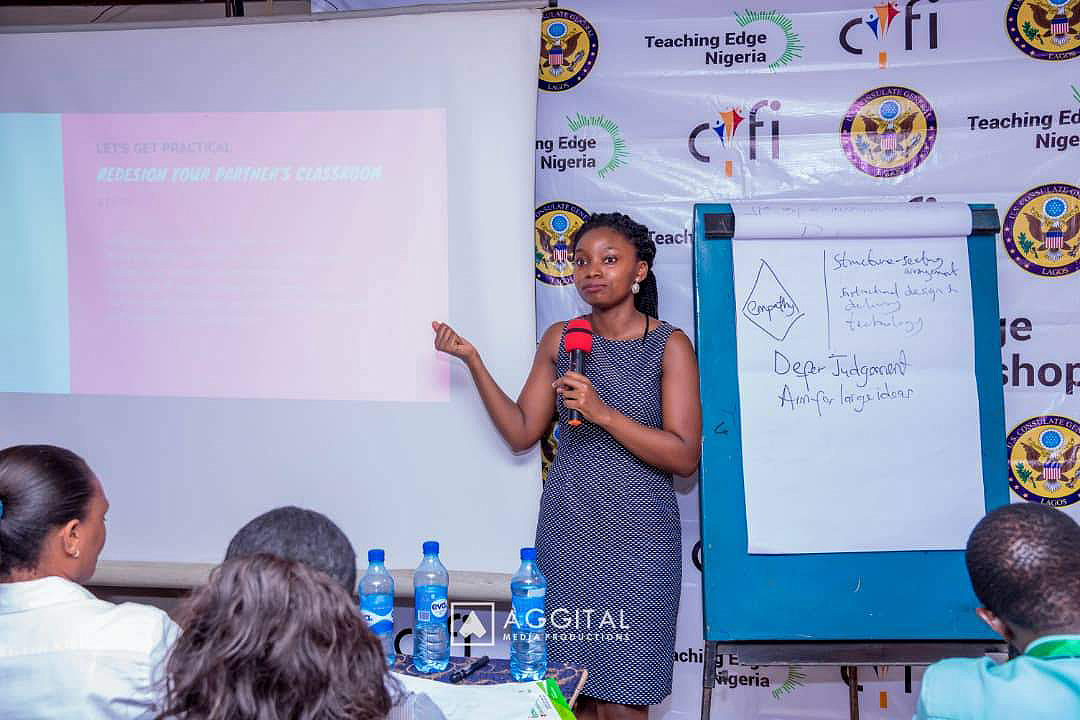Interview by Chief Editor
July 2020 7 min read

Oluwabusola Majekodunmi or simply Busola is an enabler who is passionate about deploying innovation and design thinking as problem-solving tools to harness the potential of individuals and companies on the African continent. She founded Steering for Greatness Foundation, a youth-led NGO to provide relevant education for teens, children, and teachers. As a rising profile featured in our Amplified interview series, Busola discusses her journey, collaborations, and aspirations.
(VC) Outside all your accomplishments and continuous contributions in service to the public, who is Busola Majekodunmi?
(Busola) I’m a love child of a love God who enjoys music, reading, and cooking new recipes.
(VC) You have led a foundation that promotes youth literacy through experiential learning and empathy. As it relates to this, in your Bootcamp outreach programs, what are the common challenges you have observed?
(Busola) Prior to Steering for Greatness Foundation’s Leadership, Entrepreneurship, and Technology Boot Camp, there weren’t any holiday programs uniquely crafted to help teenagers develop and hone soft skills in an experiential way. Our first challenge was convincing parents to buy into this idea of a leadership and entrepreneurship camp where their children would spend the week solving problems, developing skills like public speaking, financial literacy, creativity, and critical thinking. It seemed abstract to them, especially for the communities we were targeting. Another challenge is funding. I have enjoyed the generosity of well-meaning individuals – family, friends, and former colleagues who have supported the cause but corporate funding and grants proved a challenge those early days.
Some unconscious biases or stereotypes exist on the continent in relation to gender, biases around what a woman can or can’t do, or perceptions that a woman shouldn’t be over-ambitious because it makes her intimidating
(VC) Given the realities of a developing continent, what are the common challenges you have faced with gender equality in your aspirations?
(Busola) It’s not unusual to experience a scenario where someone visits one of our programs and requests to meet the “organizer” or founder, and when I step out to interact with them, they have that look of shock or expression that they weren’t expecting a woman and one so young. Some unconscious biases or stereotypes exist on the continent in relation to gender, biases around what a woman can or can’t do, or perceptions that a woman shouldn’t be over-ambitious because it makes her intimidating. I have had people make similar statements to me, but I would also say that it’s usually an exception and not the norm. The awareness of gender equality is increasing by the day on the continent.

Steering for Greatness Foundation activities
(VC) A perfect world does not exist, but if one did what core values would you make a staple in the community?
(Busola) Empathy is definitely my first recommended core value. I believe the world would be a much better place if people cared for others genuinely and took the time to put themselves in others’ shoes before making decisions or choices. Another core value would be excellence. Imagine a world where everyone conscientiously gave their best and aimed to deliver outstanding results. It would be extraordinary. These two values coupled with Innovation, Faith, Tenacity, and Gratitude are what I would make a staple in the community.
(VC) As an emerging woman in a male-dominated world, what can you candidly tell the aspiring women business owners about success and risk?
(Busola) Being a woman business owner in a male-dominated world typically means having to go above and beyond what her male contemporaries have to do. However, I have come to realize two things – it’s crucial that she is not afraid to make courageous decisions regarding her business. I used to hold back and tend to think what if it fails but since I switched my mindset to what if it works, I have begun to reap the benefits of courage. I am still learning myself though. Secondly, learn to be strategic in risk-taking. Don’t be penny-wise, pound foolish.
(VC) Many organizations, like the media, shape society’s perceptions about awareness, what does self-awareness mean to you?
(Busola) I often like repeating the quote “to thyself be true” to myself and pause to do a self-review as often as I can. Self-awareness is the ability to know who you are when no one else is in the room, what you stand for, and what you are feeling per time. It’s very easy to jump on the bandwagon these days as things trend but as a self-aware person (I call myself an enabler), I won’t jump on a trend or name myself based on a trend if it doesn’t align with who I am at the core.
The pandemic also brought us the opportunity of a global audience for our annual Future of Work Summit held in May. We were able to collaborate with speakers from Japan, the USA, South Africa, and Nigeria
(VC) How has the Coronavirus (COVID-19) pandemic affected your outlook on life-related to your collaborations and foundation partnerships?
(Busola) Though the pandemic has been disruptive, to say the least, keeping an open mind has afforded me the opportunity to extend the impact or reach of our programs. Now beyond Lagos or Ibadan Nigeria, we are designing online programming that caters to African teenagers and teachers. The pandemic also brought us the opportunity of a global audience for our annual Future of Work Summit held in May. We were able to collaborate with speakers from Japan, the USA, South Africa, and Nigeria. I am optimistic and open to partnerships around bridging the education access gap that the pandemic has made more glaring.
(VC) Some mention different historical times as a period they admire for affluence or culture. If you can time-warp to any era to collaborate with its culture, what time would it be?
(Busola) Though I am a 90s child, I would definitely want to collaborate with the 90s because of the communal culture that hadn’t fully eroded then. It was an era of genuine community outreach, many people that were in the social space didn’t go into because of the “celebrity status” or the need to be seen as making an impact. Another era would be the precolonial era when women provided leadership for their communities by leading battles or creating arts. Women like Queen Amina of Zaria and Moremi of Ile-Ife, to have conversations on how they courageously led their communities.

Busola photo courtesy AGGITAL
(VC) In your quiet or noisy moments, how do you get inspired? What makes you work the way you do. Do you seek religion or spirituality like others for inspiration?
(Busola) My main source of inspiration is God. I cherish that relationship above all else because it is freeing. I can bear my discouragements, joys, weaknesses before Him without shame and come out feeling refreshed and rejuvenated with new ideas. I also spend time listening to music, once I start feeling unsettled, I switch on my playlist. Finally, I seek out enriching conversations with my best friend or take a walk.
(VC) What kind of work can the world expect from Busola within the next five years?
(Busola) I am looking forward to creating pathways to scale and multiply the reach of the work I currently do. The world can expect an innovation lab where young people in Nigeria can tinker and build solutions that are context-specific; books on the intersection of innovation and policy and a memoir; a finance consulting agency specifically supporting entrepreneurs on how to scale their businesses financially. Overall, wherever I turn to next, I would love for it to enable people, companies, and countries to be better versions of themselves.